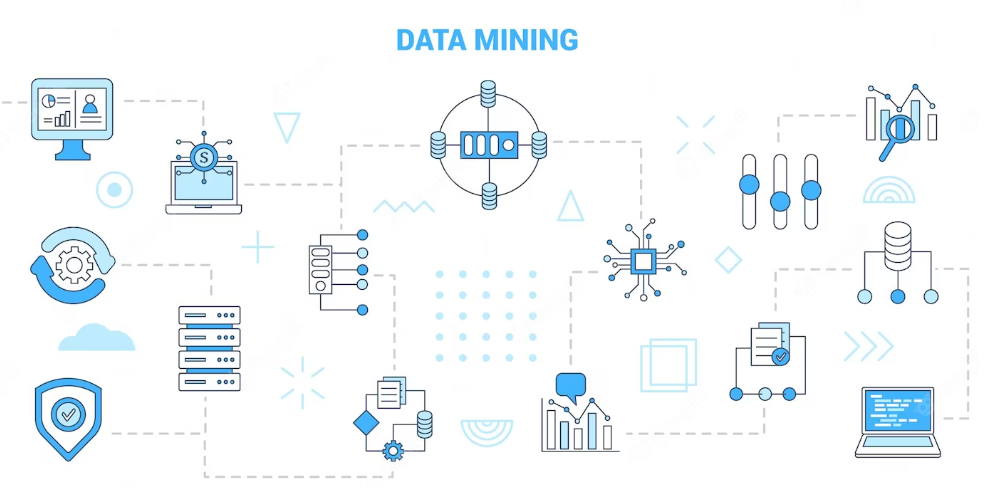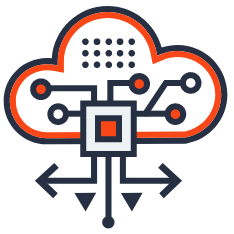
The era we live in is often called the information age, and for good reason. Never before have we been able to collect, store, and analyse so much data
Companies, governments, and organisations around the world generate a staggering amount of information every day, which if used correctly, can yield powerful insights and drive strategic decision-making. One such technology at the helm of this transformation is Data Mining. By unearthing patterns, correlations, and knowledge from vast data sources, data mining has become the backbone of strategic business decisions.
What is Data Mining?
Data Mining is the computational process of discovering patterns in large datasets involving methods at the intersection of artificial intelligence, machine learning, statistics, and database systems. Its overall goal is to extract information from a dataset and transform it into an understandable structure for further use. It is not merely about extracting raw data; it’s about discovering subtle patterns and hidden insights that can inform decision-making.
Data Mining, often referred to as Knowledge Discovery in Databases (KDD), includes data cleaning, data integration, data transformation, data interpretation, and knowledge presentation. The ultimate aim is to discover and present knowledge in a format that is easily comprehensible to humans.
Importance of Data Mining in Business
Data mining plays an essential role in modern business because it gives companies access to previously unknown information, enabling them to make strategic decisions that give them a competitive edge. Let’s take a look at some of the key ways data mining contributes to business strategy.
Enhanced Customer Segmentation and Targeting
Data mining can help identify common characteristics and behaviors among certain groups of customers. This information can help businesses tailor their products, marketing campaigns, and services to specific customer segments, increasing conversion rates and customer satisfaction.
Fraud Detection and Risk Management
Using data mining, businesses can build models based on historical data to predict fraudulent activities. Similarly, it can assist companies in identifying and managing risk, which is crucial in industries like finance and insurance.
Efficient Operations and Reduced Costs
Data mining can streamline operational efficiency by identifying bottlenecks or inefficiencies in the processes. These insights can lead to cost savings and improvements in the quality of products or services.
New Business Opportunities
By discovering patterns and relationships in business data, companies can identify potential new business opportunities that might not be evident through traditional analysis.
Data Mining Techniques
There are several data mining techniques that businesses can use, each suitable for different types of tasks. Here are some common ones:
- Association Rule Learning: This method identifies relationships between variables in a large dataset. It’s most commonly used in market basket analysis to identify products frequently bought together.
- Clustering: Clustering groups similar data points together. This can help with customer segmentation, document categorisation, or identifying anomalous activity.
- Classification: This technique categorises data into predefined classes or labels. For instance, a bank might use classification to determine whether to grant a loan to a customer.
- Regression: Regression predicts numerical values based on the input data. For instance, it could be used to forecast sales or estimate property prices.
- Sequential Patterns: This technique discovers relationships between events that occur over time, like identifying the sequence of pages visited by customers on a website.
The Future of Data Mining
With the rise of technologies like big data, artificial intelligence, and machine learning, the potential for data mining is only set to increase. The advent of technologies like Internet of Things (IoT) means that the volume of data available for mining is growing exponentially. By integrating these technologies, businesses will be able to mine data in real-time, leading to even more timely and accurate insights.
As businesses become more global and complex, the need for data mining in decision-making processes is going to become ever more critical. Companies that can leverage data mining effectively will be able to gain a significant competitive edge in their industries.
Conclusion: The Backbone of Strategic Business Decisions
In today’s data-driven world, data mining has emerged as a significant tool for strategic business decisions. It can unearth valuable insights from vast data sources, helping businesses identify opportunities, manage risks, enhance customer satisfaction, and gain a competitive edge.
But remember, data mining is not a silver bullet. It needs to be combined with a clear understanding of your business goals, robust data governance practices, and a culture that values and understands data. Implementing data mining can be a complex process, requiring significant investment in time, resources, and expertise. But the potential rewards in terms of increased business efficiency, improved decision-making, and new opportunities make it well worth the investment.
Call to Action
Now is the time to make data mining a central part of your business strategy. The data revolution is here, and it’s transforming the business landscape. You have the opportunity to turn your business data into strategic insights, drive informed decisions, and secure a competitive edge.
Do not let this opportunity pass by. Embrace the power of data mining today and step into the future of strategic business decision-making. The potential gains are enormous, but only for those businesses that dare to take the leap. Make sure you’re one of them. Remember, in the modern business world, those who understand their data, control their destiny.
Discover what data mining can do for your business
To fully explore how data mining can benefit your organisation, reach out to our team of automation experts for a tailored demo.







